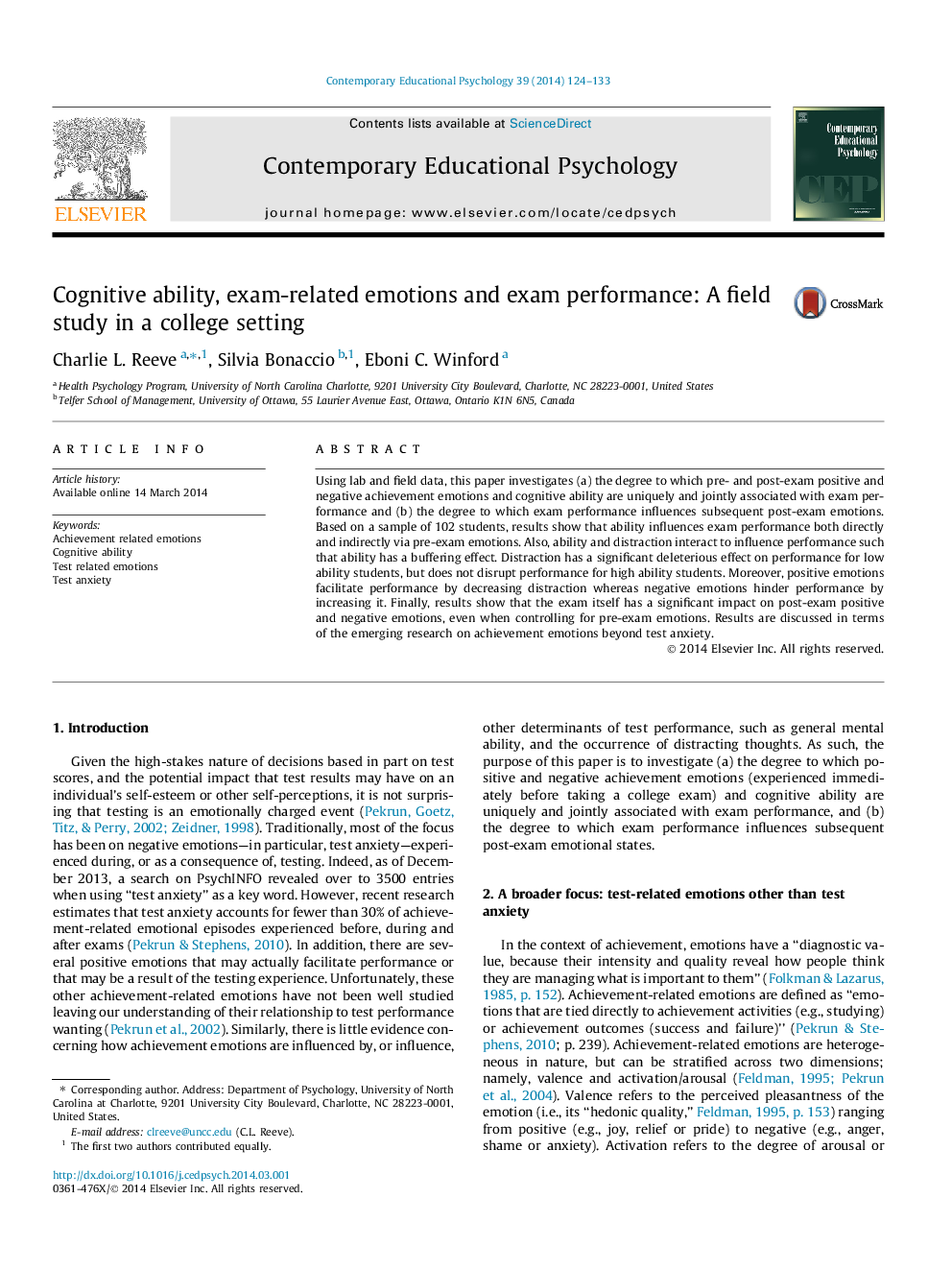| Article ID | Journal | Published Year | Pages | File Type |
|---|---|---|---|---|
| 352638 | Contemporary Educational Psychology | 2014 | 10 Pages |
•Cognitive ability impacts performance directly and indirectly via pre-exam emotions.•Cognitive ability and distraction interact such that ability has a buffering effect.•Positive emotions facilitate performance by decreasing distraction.•Negative emotions hinder performance by increasing distraction.
Using lab and field data, this paper investigates (a) the degree to which pre- and post-exam positive and negative achievement emotions and cognitive ability are uniquely and jointly associated with exam performance and (b) the degree to which exam performance influences subsequent post-exam emotions. Based on a sample of 102 students, results show that ability influences exam performance both directly and indirectly via pre-exam emotions. Also, ability and distraction interact to influence performance such that ability has a buffering effect. Distraction has a significant deleterious effect on performance for low ability students, but does not disrupt performance for high ability students. Moreover, positive emotions facilitate performance by decreasing distraction whereas negative emotions hinder performance by increasing it. Finally, results show that the exam itself has a significant impact on post-exam positive and negative emotions, even when controlling for pre-exam emotions. Results are discussed in terms of the emerging research on achievement emotions beyond test anxiety.
Graphical abstractFigure optionsDownload full-size imageDownload as PowerPoint slide
